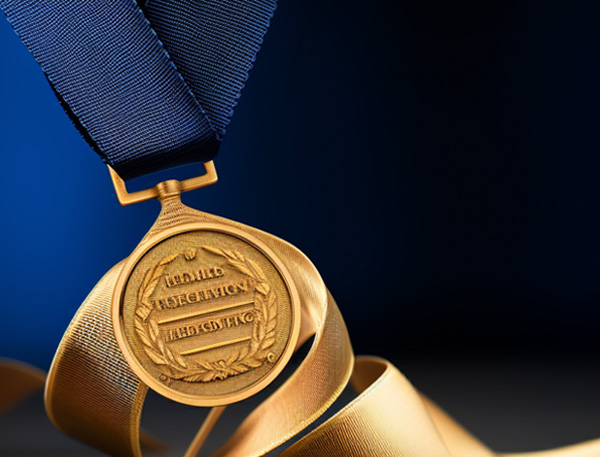- Blog
- HAPS
On the Passing of John B. Goodenough, Professor at the University of Texas at Austin
#Next-Generation Battery
Jun 30, 2023
SoftBank Corp.


Blogs
SoftBank Corp. (“SoftBank”) employees were greatly saddened to hear that John B. Goodenough, a professor at the University of Texas at Austin, passed away on June 25, 2023.
SoftBank has been developing lightweight and large-capacity next-generation batteries for its HAPS business, drones, and other applications. In December 2020, SoftBank succeeded in developing a world-class next-generation lithium-metal battery cell with specific energy of 450Wh/kg, followed by achieving specific energy of 520Wh/kg in 2021.
SoftBank’s development partner, Enpower Greentech Inc. had been collaborating with the research group of Professor Goodenough on materials technology for all-solid-state batteries using lithium-metal anodes. Professor Goodenough himself provided a lot of advice on next-generation batteries being developed by SoftBank. Professor Goodenough’s extensive experience and abundant knowledge brought new possibilities to SoftBank's research projects and have allowed it to make remarkable progress in its next-generation battery research, including lithium-metal battery cells.
In December 2020, during the COVID-19 pandemic, Professor Goodenough participated in an online meeting with SoftBank, and in 2021 the following comments were received from Professor Goodenough concerning SoftBank's press release: "SoftBank Corp. and Enpower Greentech Successfully Verify 450+ Wh/kg Energy Density Battery and Succeed in Development of Core Technologies for Longer Battery Life".
"I am pleased to see the excellent work of the Enpower and SoftBank team on the development of advanced battery technologies and on applications that contribute to the SDGs (Sustainable Development Goals). My research team is honored to contribute to this worthwhile effort from a fundamental materials science perspective, and I wish the Enpower and SoftBank team every success in this endeavor. "
In 1980, Professor Goodenough discovered lithium cobalt oxide (LiCoO2), which is still used as a cathode material in lithium-ion rechargeable batteries. This material has since been used by Sony Corporation, which commercialized the world's first lithium-ion rechargeable battery in 1991, and the material shows exceptionally excellent properties. This ground-breaking discovery led to the fast development of lithium-ion rechargeable batteries, which have contributed significantly to breakthroughs in smartphones and electric vehicles (EVs), dramatically changing people’s daily lives and expanding future possibilities.
In 2019, Professor John Goodenough was awarded the Nobel Prize in Chemistry for his work on lithium-ion batteries, along with Stanley Whittingham and Akira Yoshino.
Professor Goodenough also made substantial contributions to the growth of the rechargeable battery industry, including the discovery of lithium iron phosphate material (LiFePO4), which is considered to be a low-cost version of lithium-ion rechargeable batteries for EVs and ESS (Energy Storage Systems) applications.
SoftBank’s employees deeply appreciate Professor Goodenough's achievements and express their deepest condolences on the passing of one of the world’s great scientists.
■ Online meeting with Professor Goodenough (December 2020)

(Left) Professor John Goodenough, (Center) Junichi Miyakawa, President & CEO, SoftBank Corp., (Right) Sam Dai, CEO, Enpower Greentech Inc.